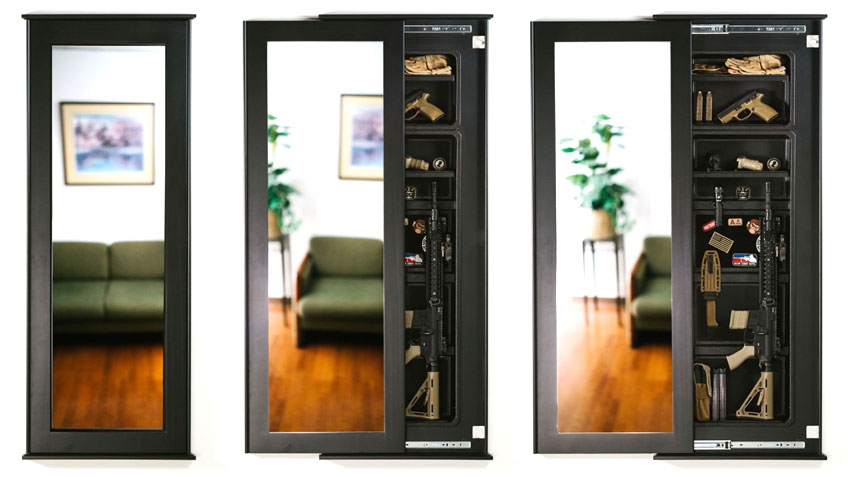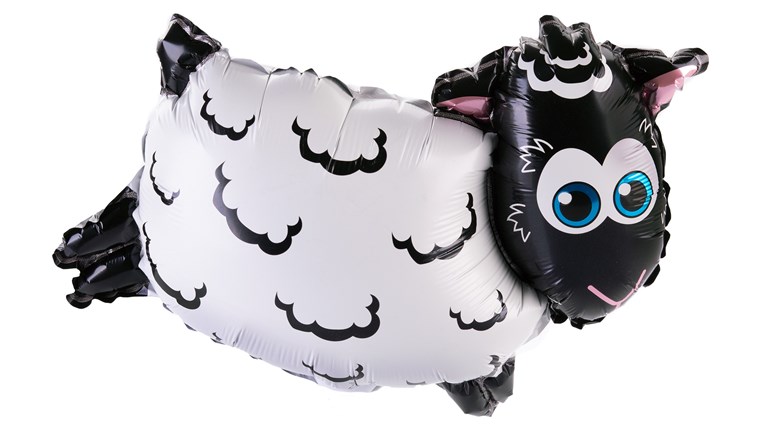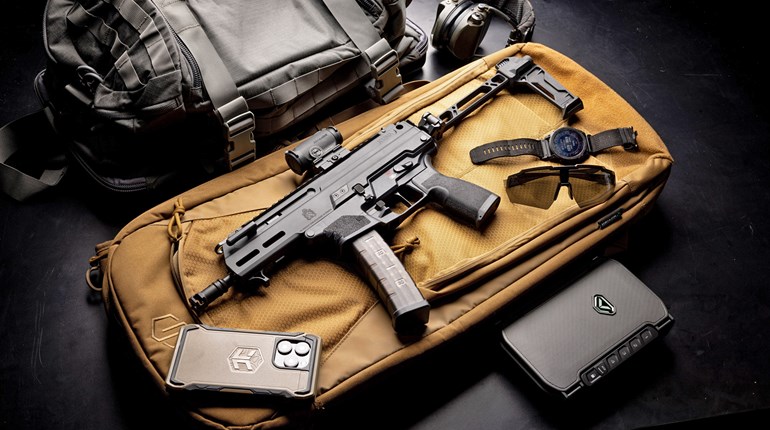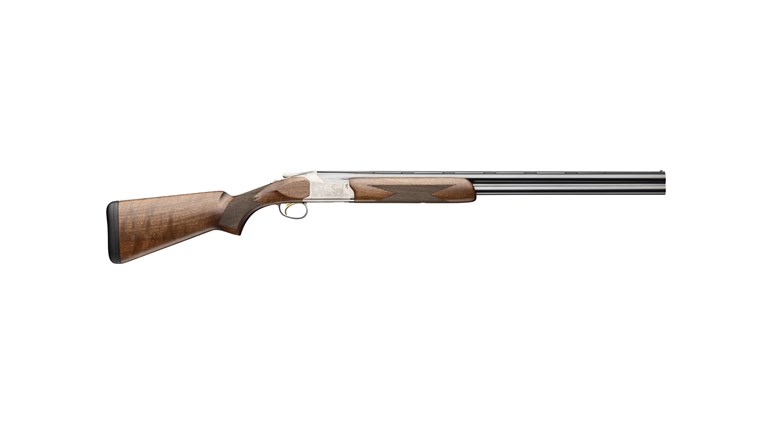
Balancing security and accessibility can be a tightrope act. Items like the Concealment Cover mirror from Tactical Walls allow you to hide gear in plain sight.
I would wager that for the first 175 years (or so) of our country’s existence, it was perfectly normal to find a longarm of some sort within easy reach inside the average American home. Most gun owners hung their arms on walls or sat them behind doors without any real efforts made to conceal them. After all, the idea was that if you needed a long gun, you needed it in a hurry. Handguns were less-common as the go-to home defender in those days, so rifles and shotguns had to stand ready for anything. Gun racks and glass-front cabinets came into vogue in the mid-20th century as we theoretically became more civilized. I built one of each in high school woodshop and used them back in the days when home break-ins were rare events outside of big cities. Things are different today in terms of what constitutes a smart gun-storage method. We no longer advertise our arms and we go to great lengths to ensure they are not easily accessible to just anyone. The problem is that we are less safe in our homes today than were our forebears, and by a fairly wide margin.
Setting aside the traditional and hopefully remote threat of foreign invasion, we now have terrorists applying their deadly ideologies in cities and rural communities alike. Thieves no longer think twice before kicking open the doors of occupied residences in hopes of taking what was never theirs, or worse. Aside from physical threats, we are faced with a decidedly gun-phobic nanny state that wants to know all about the firearms in our homes. Our challenge lies in finding a safe and secure way to keep these defensive tools accessible without advertising them to those who prey on an unarmed populace.
Today’s armed citizens usually rely on handguns for immediate defense, often backed up by some sort of longarm for bigger problems. Larger firearms are obviously much tougher to conceal without losing quick access to them. Fortunately we still benefit from a free-market economy where practical needs are answered by entrepreneurial minds. The realm of covert firearm storage is a perfect example, adapting to the times with gun safes, purpose-built furniture and well-hidden racks.
While a good-quality gun safe is an excellent way to prevent theft, fire damage or access by unauthorized individuals, they are slow to open under stress, even with keypad locks. But, if you have a slightly less urgent need—like a rabid critter on the front porch or an impending threat as opposed to an immediate one—getting your long gun out of the safe and ready in a timely manner is easy enough. The other drawback to safes is that unless you build a wall around them or dedicate a separate room to them, sizeable vaults are not exactly discreet.
Several companies offer realistic furniture pieces that allow firearm access for more immediate needs without screaming “Guns are in here!” These practical devices usually have some form of locking mechanism—typically in the form of traditional or magnetic keys. As these systems evolve, though, companies are turning to more elaborate systems such as biometric (fingerprint) locks or RFID-controlled latches that release when a coded “key” comes in close proximity to the lock.
The storage solutions themselves range from functional shelves, tables, cabinets and couches built by craftsmen to simple containers inset between wall studs and covered by decorative facades. A couple of companies making quality products in this category are Tactical Walls and Covert Cabinets. Both manufacture their concealment furniture in the U.S. and offer a variety of products for long and short guns. A simple web search for “concealment furniture” will yield many more sources and even a few DIY ideas.
For simpler and faster needs where a non-locking storage method is desired, The Gun Grabber offers wall-mounted racks that securely hold single rifles (or shotguns). These racks provide ready access and store the longarm vertically. The key advantage here is that your rifle can be stashed in a closet, behind vertically hung clothing and yet still be removed quickly by simply parting the clothes. Try that with a long gun that is hung horizontally behind clothes and see how quickly you can get it into action [hint: not very]. The Gun Grabber uses a sturdy polymer bracket lined with thick rubber jaws to hold a long-barrelled firearm in place through friction. Removing the rifle is as simple as grasping the stock, grip, receiver or fore-end and rotating it outward, away from the wall. A separate bracket is provided for wall attachment at buttstock level for heavier guns.
Whatever your rifle storage method, ensure that it is safe for all in your household. If there is even a remote chance of unauthorized firearm access, secure it with a proper locking system and learn to access it as quickly as possible—and practice, practice, practice. That goes for quick-access storage methods too: Work on getting your rifle into action in the dark, in a hurry and if possible under some type of stress (for example, use a timer and have a specific time limit to meet).
The times may no longer allow you to grab that field-worn .30-30 from behind the kitchen door when trouble comes calling, but you can still get a rifle into action quickly enough to deal with problems too great for your handgun comfort zone. Options for discreet storage that still allow rapid access abound, and there are many options to meet your needs.



































